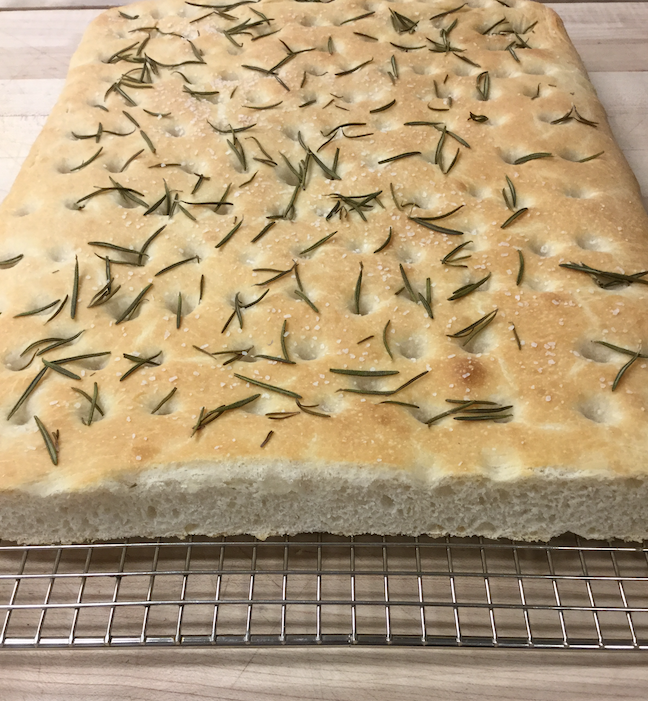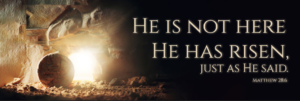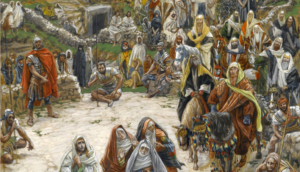
SLOW LIVING: IS GOD CALLING US TO A NEW WAY OF LIVING?
Have you noticed that bread making is on the rise lately? Apart from toilet paper, flour and yeast appear to be the items most likely out-of-stock in stores. Is this surprising? What if anything does bread-making require? Time. And time is something we have more of these days. Time is being put back on the agenda of life, as our prior fast-paced world of doing, working, consuming, parenting, eating, cooking – and even resting (think power naps!) more is being stifled.
Is this a bad thing? Some economists, who live by the mantra, “Time is an invaluable commodity”1 are far too focused on lost GDP, decaying markets and stalled innovation.
On the other hand, this crisis we are facing could be a glass-half-full scenario for us, a “kairos moment,” as the ancient Greeks used to say: making the most of the time (check out Ephesians 5:16). This can be a time to change our focus away from GDPas a measure of progress, as a way of unshackling ourselves from the vagaries of the soulless market, and less meaningless consumption, and yet all with even greater innovation than previously seen.
Time is NOT a commodity, or money. Time is life! And what is life about, at least for Christians? Living gently within creation, among family and loved ones in community, tending with mercy to those who are suffering, seeking justice for those left behind, and becoming more humble as a species (realizing that we are not in control of this vast beautiful creation). If this sounds familiar, it should be. According to Micah 6:8, it’s really all God requires of us! 2
To be clear, God did not will this crisis. But I believe God is helping us to use it as a kairos moment. In fact, God’s been helping us on this issue for some time now. The “slow movement,” I suggest, is part of our response to what we in the industrialized North have been hearing within our hearts for some time: put an end to our crazed and unhealthy living. You probably first heard of this movement as “slow food.” Started by an Italian, as a reaction to a McDonald’s opening up in Rome’s revered Piazza di Spagna in 1986, it has since grown into many forms: as “slow parenting,” “slow aging,” “slow consumption,” “slow fashion,” and even “slow professor”!
While not all the same in their expressions, what all these “slow living” movements have in common is a call to change how we live our daily lives, namely: living life at a more natural pace; making sure our actions are sustainable with ties to regional-local means of production and consumption; finding meaning and purpose in all that we do; doing more ourselves and within community; and – of course – doing less.
But how are we to really grasp what ‘less’ means? Pope Francis in Laudato Sí says himself, “less is more” (#222).
I find environmental writer David Orr’s, article called “Slow Knowledge”3 helpful, as he compares the cultures of fast and slow. While he speaks specifically of ‘knowledge’, the lessons to life as we live it are relevant. “Fast knowledge,” always considers more knowledge to be better, and knowledge that is used for our use is better than any knowledge that is merely contemplative. “Fast knowledge” brings us oil spills, unemployment, poor mental health and poverty. In contrast, “slow knowledge” is adjusted to fit a particular ecological and cultural context; it promotes resilience, wisdom, and humility. It tries to avoid problems (before we create them).
Orr puts it this way: “Slow knowledge really isn’t slow at all. It is knowledge acquired and applied as rapidly as humans can comprehend it and put it to consistently good use.” He is really getting at the crux of our problem when he tells us that as a species we do not collectively learn and assimilate new ideas quickly; in fact, the opposite is true:
“A half century after his death, for example, we have scarcely begun to fathom the full meaning of Gandhi’s ideas about nonviolence,…Nearly a century and a half after The Origin of Species, we are still struggling to comprehend the full implications of evolution. And several millennia after Moses and Jesus and Buddha, we are about as spiritually inept as ever.”
It might be humbling for us to hear this, but we humans have not been created to know fast, eat fast, think fast, parent fast, consume fast or live fast – at least all the time, and certainly not at our current evolutionary state. We’re simply not that adept as a species.
But before we get our collective knickers in a twist – as an old Irish friend always reminded me not to do – let’s heed what I think Pope Francis means when he talks about “less” being “more,” in light of Orr’s message. Less is not simply doing without, any more than slow living is slow. A quality of life is implied. Less – and slow living – is living out our daily lives more abundantly, but only as rapidly as we can manage physically, mentally and spiritually. Less – and slow living – has us orient our lives to consistently good use for others in creation.
The rise of bread making at home is a hopeful, Easter sign for creation.

There is nothing quite like the smell of fresh homemade bread….
Photo: Elena Appolloni
It is an act we simply cannot do fast. My daughter (a pastry chef and, like others, unemployed), has been baking bread these days cooped up at her home. To be frank, I’ve not seen her this happy and calm for some time. She calls to check in on me and her mother; she is diligent not to infect others should she have the COVID-19 virus; she is careful to live with what she is receiving from the government; and she is offering bread-making-kits for friends and family (complete with instructions, and ingredients!) to those of us who are less bake-savvy. Isn’t this what God requires, and with a little innovation to boot?
–Simon Appolloni, Associate Publishing Director, Novalis
- See The Economist editorial April 2: https://www.economist.com/leaders/2020/04/02/covid-19-presentsstark-choices-between-life-death-and-the-economy
- Micah 6:8 – To act justly and to love mercy and to walk humbly with your God
- “Slow Knowledge,” by David Orr, Conservation Biology 10, no. 3 (Jun., 1996): 699-702.



Love this! Yes, the slow down has been a definite silver lining in all of this!
Thank you so much. Perfect reminder of a new way to live . Please keep up the Good News !
Reda MacDonald